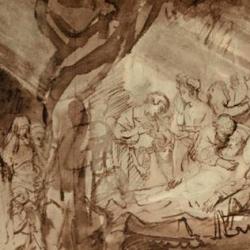Some reflections in spired by a paper on the biblical theology of the city by a student, Lisa Beyeler.
1) Genesis 1-11 is often treated as a “prologue” to Israel’s history, but that tends to detach it as “natural history” as opposed to “redemptive history.” It is a preparation for the history of Israel, but not because it is detached from Israel’s history. Rather, Genesis 1-11 sets up the problems that Israel is designed to solve. Abram is called right after the collapse of the Babel project, and Hebrews 11:10 says that he looks for a “better city, whose builder and maker is God.” Abram never built a city, of course, but he’s an urban visionary.
2) After the flood, Noah planted a vineyard. That is, he doesn’t do what Cain did, immediately establishing a city. He starts over again with a garden. Abram does the same: After Babel collapses, he doesn’t immediately found a city, but moves from place to place, worshiping in garden-groves. This might provide a way of making room for a form of tactical or strategic move from the city. After an urban civilization collapses, a return to the garden is the beginning of a new cycle of garden-to-city. This is not to endorse an ideological agrarianism – the notion that country life is inherently superior to city life, a notion that the Bible nowhere endorses. Noah’s vineyard was the beginning of a new progress toward a better city, and so were Abram’s altars.
3) Arguably, the same pattern is evident in the establishment of a tabernacle. After the highly developed civilization of Egypt collapses by force of Yahweh’s plagues, Yahweh doesn’t immediately tell His people to found a city, but instead instructs them to build an architectural garden, the tabernacle. They take the treasures of an urban civilization and begin to start over, aiming to form a new city.











